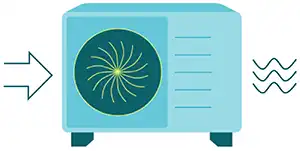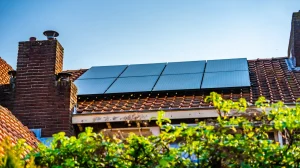We know life on the farm is busy, and it can be easy for fuel safety and security to be pushed down the priority list – but it’s important not to let standards slip.
Here we shine a spotlight on fuel safety and security and outlining steps on how to mitigate risk, so you can protect your farm, your workers and your fuel through harvest and beyond.
1. Think smart about fuel storage
When you think fuel safety, think tanks. You can be held liable for any contamination, pollution or spills that result from unsafe fuel storage on your farm and risk costly fines and even prosecution.
It is imperative that your fuel is secured in a storage solution that’s been designed to meet ISO 9000 quality management standards and that the tank you choose is bunded, or surrounded by a secondary containment structure.
The bund must have a life-expectancy of at least 20 years with maintenance; be impermeable to oil and water (walls and base), with no drain-down pipe; contain every part of the tank, with taps and valves directed down and locked shut when not in use; and contain delivery pipes that are permanently attached to the primary tank. These must be fitted with self-closing taps or valves and locked inside when not in use.
All components of your tank must be at least 10 metres away from inland or coastal waters, and this includes yard drains, dry ditches and land drains. This will help ensure in the event of a spillage, waterways will not be polluted, or public health put at risk. If tanks are underground, they must also follow the Defra Groundwater Protection Code. Additionally, it is advisable to conduct regular – and safe – checks for cracks or leaks and to contact the Environment Agency immediately if you have any concerns.
It’s also important to remember that our delivery drivers are obliged to refuse to fill up a storage tank if it is deemed to be unsafe for refuelling, which can lead to interruption in fuel supply and unexpected downtime.
With 110% integrally bunded tanks designed to meet or exceed local environmental guidelines, fuel storage standards and manufacturing regulations, we can advise on the tank solutions best suited to your needs.
Visit the government website for more information on the regulations for storing agricultural fuel.
2. Think robust fuel security
Farm Safety Week is a timely reminder to focus on fuel safety but it is also a good time to assess fuel security – particularly as fuel theft on farms is on the rise.
Fuel tanks on farms are an attractive target for thieves, as they are often in isolated locations. Bright, movement-triggered flood lights, adequate security signage and visible CCTV can act as powerful deterrents for prospective thieves, and measures such as robust fencing and locked cages can disguise tanks and inhibit access.
Additional features, such a secure lock or key fob, can help further bolster tank security. Don’t forget about fuel bowsers, clamping them or safely storing them away from view when not in use, and also store fuel-related products, such as lubricants, additives and AdBlue®, in a secure location, out of sight and out of reach of non-workers, including children.
Tank monitoring systems are also a smart and convenient solution for helping to keep fuel both safe and secure – and for better fuel management. Our wirelessly-fitted FuelWise telemetry system enables real-time remote fuel monitoring across multiple tanks, with automatic alerts triggered in the event of a sudden drop in levels, which could indicate theft or a leak. This allows you to take swift remedial action, contacting the relevant authorities, such as the police or the Environment Agency, potentially limiting environmental damage and increasing the chances of recouping losses.
It also helps to avoid unexpected downtime from depleted stores due to theft, as automatic top-ups can be triggered when levels are low. As an additional safety feature, telemetry systems help to reduce the need for manual checks on fuel levels, limiting the need for farmers to work at a height.
Think fuel safety and security. Think Certas Energy.
With so much to consider, it can be difficult to know where to turn or how to make the safe, secure choice. We’re here to help.
We are dedicated to delivering a full, efficient service to each and every farm we supply.
Our OFTEC registered engineers conduct thorough on-site farm safety surveys, offering bespoke advice and recommendations so you can fulfil your fuel tank requirement needs for smarter and safer storage on your farm.
Furthermore, as part of our Safety F1rst initiative, we work with the farming community to provide training on safe handling and storage of fuel, best practice in preventing spills and leaks, and what to do in the event of a spill, leak or theft .
Ultimately, the responsibility for fuel handling and storage falls to farmers – but with the right training, robust risk assessment and expert advice and support, you can rest assured you are doing all you can to keep you, your fuel and your farm safe and secure.
Need a helping hand when it comes to fuel safety? Get in touch with our experts today.








